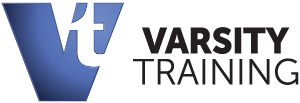The broad purpose of the occupation is to provide high quality early education and care to children. Through an evidence based approach, they provide opportunities and learning experiences for all children, including those with special educational needs and disabilities (SEND). Early years educators follow the Early Years Foundation Stage (EYFS) requirements set by government for the learning, development, and care of children from birth to 5 in both indoor and outdoor environments
An employee in this occupation will be responsible for ensuring a safe and secure environment for children’s learning. They ensure that the learning environment and provision is inclusive and supports all children, and demonstrate a clear understand of equality, diversity, and inclusion. Early years educator’s teach and facilitate children’s learning play. They apply the observation, assessment, and planning cycle to support progress and children’s development. An early years educator will act as the key person for one or more children within their setting. They may play a leadership role within the setting or may act under the supervision of a manager.
Typical job titles include; Childminder assistant, Early years educator, Early years worker, Nursery educator, Nursery nurse, Nursery worker.
- Taught Blended Workshops
- Named Assessor
- Assessment of practice
- Portfolio of evidence produced
- Dedicated resources
- Support children’s learning and development through applying knowledge of pedagogy and the observation, assessment, and planning cycle.
- Develop secure and supportive relationships with children and families as the key person for children in their care, advocating for those children.
- Provide respectful and responsive physical and emotional care to children, promoting health and wellbeing.
- Work with key individuals in children’s lives (for example parents, families, and carers) to improve all children’s outcomes and wellbeing.
- Work in partnership with other organisations and agencies to support children’s learning, development, health and wellbeing.
- Support the implementation of change to improve practice.
- Initiate and engage in continuous professional development, underpinned by reflective practice.
- Ensure compliance with child protection and safeguarding legislation, policies, and procedures.
- Work in ways that promote and support equality, diversity, and the inclusion of all children, respecting their social and cultural context.
- Ensure compliance with Health and Safety legislation, policies, and procedures.
- Use technology to record and update information for example observations, assessments, reports, risk assessments, and safeguarding concerns.
- Promote and engage in children’s play. Support all children to create and adapt the environment to reflect their interests and enable their learning and development.
- Ensure legal requirements of statutory frameworks are met within policy, procedure, and practice.
This qualification allows candidates to progress into employment or to the following apprenticeship standards:
- Level 5 Early Years Lead Practitioner





